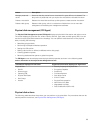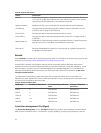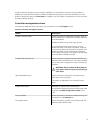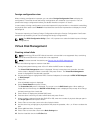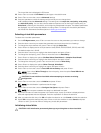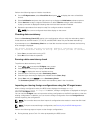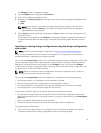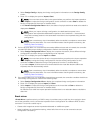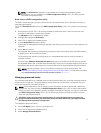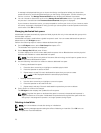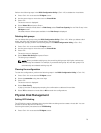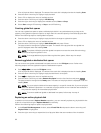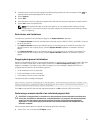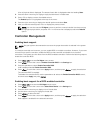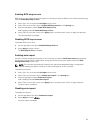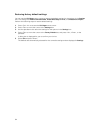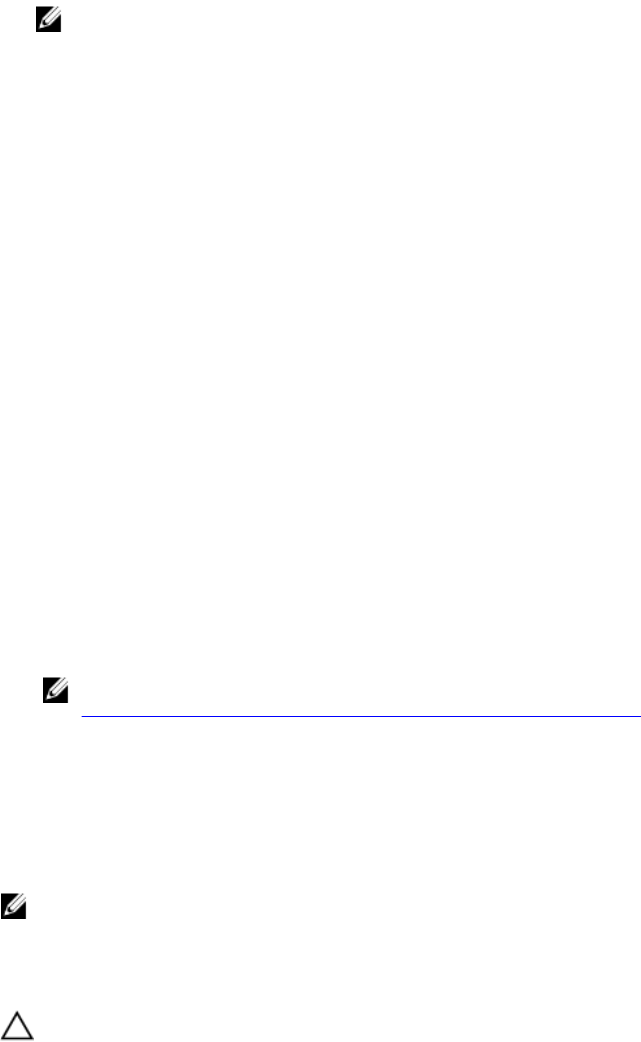
NOTE: The Break Mirror operation is not available within the booted operating system
environment. It is only available in the BIOS Configuration Utility (<Ctrl> <R>) utility and the
UEFI RAID configuration utility.
Break mirror in BIOS configuration utility
The RAID 1 virtual disk that you wish to split must be in an optimal state, and it cannot be running any
other background tasks.
To use the Break Mirror feature from the BIOS Configuration Utility (<Ctrl> <R>), perform the following
steps:
1. During boot up, press <Ctrl> <R> when prompted by the BIOS screen. If there is more than one
controller in the system, choose the controller.
The VD Mgmt screen is displayed by default.
2. Highlight the appropriate Disk Group.
3. Press <F2> to display the available actions.
4. Choose Break Mirror and press <Enter>.
A dialog box is displayed describing the operation and asking if you are sure you want to perform the
operation.
5. Select Yes to continue.
The exported disk (exporting configuration) spins down and the hard drive status LED starts flashing
to identify which drive must be removed.
The remaining disk (exporting configuration) is in a degraded state until the missing member is
replaced or rebuilt.
If there are any Global or Dedicated Hot Spare assigned, which fulfills the rebuild requirements for
the degraded RAID 1 disk, a rebuild starts automatically. If there is no hot spare assigned, then an hot
spare that meets all the requirements for the virtual disk must be assigned before the rebuild starts.
NOTE: Importing a broken mirror is the same as importing a foreign configuration. See
Importing Or Clearing Foriegn Configurations Using VD Mgmt Menu. The imported virtual disk
is in a degraded state until the missing member is rebuilt.
Managing preserved cache
If a virtual disk goes offline or is deleted goes of missing physical disks, the controller preserves the dirty
cache from the virtual disk. The preserved dirty cache, known as pinned cache, is preserved until you
import the virtual disk or discard the cache.
NOTE: Certain operations, such as creating a new virtual disk, cannot be performed if preserved
cache exists. You have to enter the BIOS Configuration Utility (<Ctrl> <R>) to resolve the situation
before you boot to the operating system. Messages are displayed notifying you that you must enter
the BIOS Configuration Utility (<Ctrl> <R>) to discard the preserved cache or import the virtual
disks with the preserved cache.
CAUTION: If there are any foreign configurations, it is strongly advised that you import the
foreign configuration before you discard the preserved cache. Otherwise, you might lose data
that belongs with the foreign configuration.
To manage the preserved cache:
1. On the VD Mgmt screen, click on a controller icon.
2. Press <F2> to display the available actions.
3. Select Manage Preserved Cache.
77



